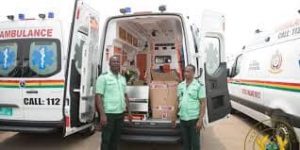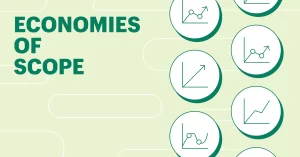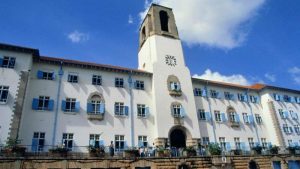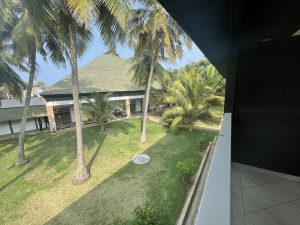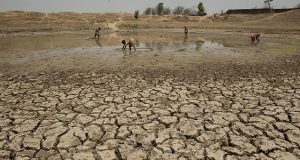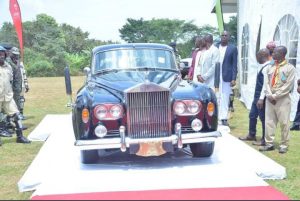
#OutToLunch What if 40,000 runners owned a cancer treatment centre
#OutToLunch What if 40,000 runners owned a cancer treatment centre By Denis Jjuuko At the end of this year’s Rotary Cancer Run, I sat down to wind down. I started reflecting on the run. This was the 11th time we have been running with 40,000 people participating this year in more than 30 towns across the country and 11 cities all over the world. It is remarkable the work that Rotary does, volunteering to address challenges of our time. This year, Jennifer Jones, the first woman in Rotary’s 117-year history to be elected Rotary International President, was in the country and duly participated in the run. The money raised during the run will go towards the ongoing construction of bunkers for linear accelerator treatment machines at Nsambya Hospital. The run came at the time when cancer is in the news for lack of facilities at the Uganda Cancer Institute in Mulago. For the majority of Ugandans, once they have been suspected of having cancer, they would have to come to Mulago as there are no facilities in local health centres. With Mulago full to the brims, one can understand the frustrations of most Ugandans in need for this treatment. We have run for 11 years now and the journey is still long to get where we need to be. The entire project is about US$4 million or approximately Shs15 billion. Rotary has less than US$1m which is being used to build the bunkers so it will take many runs to get the project completed. But even if Rotary raised all the money needed today and completed the construction of the bunkers and installation of the linear accelerators, there would still be need for more cancer centres, at least one at every regional hospital or major town. And indeed that is Rotary’s long term plan. However, there is need for more training of oncologists and nurses and all the medical people that a cancer centre must have so it is a very long journey ahead. Rotary is a volunteer organization and has no public mandate to build or equip hospitals. The idea of the organization’s involvement is to help everyone in need of treatment to get it here at home affordably. The government people and the rich class already have their cancer centres in Nairobi, India or any other country of their fancy. For us, to speak like a Uganda, we are on our own! We must run and run to get any glimmer of hope. Or pray that the Lubowa specialized hospital construction can go beyond the plinth wall! But imagine if 40,000 people who managed to run on Sunday each contributed just US$100 over 12 months, we would be able to raise US$4m in one year and have the centre completed. The following year using the same model, we would be able to buy the land and even build another centre which could be private but providing an affordable service. After the construction, we would be able to do the same and raise another US$4m which would be used to train medical workers and pay their salaries for at least a year. The 40,000 people would all be shareholders in this cancer treatment centre and their dividend would be affordable treatment here at home. The numbers could even be more because the average number of people who can participate is higher than 40,000. But to ensure that all the 40,000 committed shareholders get treated affordably, they would be encouraged to start an insurance scheme through which those who become sick can get treated without affecting the operations of the hospital. Because not all the 40,000 people will use the scheme or even need cancer treatment, other Ugandans who aren’t shareholders would be able to benefit because treatment would be very affordable. Is this even remotely possible to pull off? It is hard but not impossible. The money held by investment clubs and firms is much more than the numbers being proposed here. Some of this money is actually idle and not bringing much regular returns. If you drive around greater Kampala, you will see signposts indicating which employee benefits scheme owns which land. Yet once people retire from their jobs, what they need isn’t necessarily land harboring squirrels. They need affordable treatment. There aren’t many families today in Uganda where people aren’t struggling with medical bills of their retired aging parents and relatives. With technology such as payment apps, people can be mobilized to contribute money for a cancer hospital in which they own shares. I know this may never be possible under Rotary but entrepreneurs wishing to change the world could do it. The writer is a communication and visibility consultant. djjuuko@gmail.com

